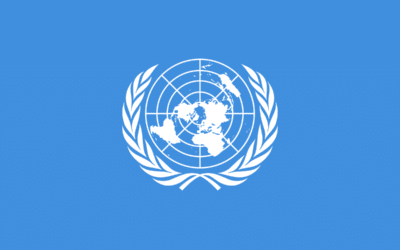Human rights and bioethics: Blind spots and routes forward
During the celebrations on 10th December, for the International Day for Human Rights, Alliance VITA is actively fighting attacks against life and supporting dignity for all in terms of bioethics. The association is calling for vigilance in order to progress towards greater justice and solidarity.
Focus on 5 challenges.
I. Reduction of the stigmatisation factors for the handicapped
In France, prenatal screening is intended for the in utero detection of particularly serious conditions affecting the embryo or foetus. The French bioethics law, in its current version, specifies that pre-implantation diagnosis (PID) is authorised only in exceptional circumstances certified by a doctor[1]. Pre-natal diagnosis, although it does provide better monitoring during the accompaniment of the mother and child to be, may also be associated with proposals for medicated pregnancy termination or therapeutic abortion (in the event of particularly serious conditions), more than 8,000 are performed per year).
Therapeutic abortion may be conducted at any time during the pregnancy without any time limit. Many people are alarmed at this new form of eugenics in France, which particularly stigmatises those suffering from Down’s syndrome : 90% of Down’s syndrome diagnoses lead to an abortion [2].
These practices favour a situation of serious discrimination against the handicapped, rightly identified among the recommendations aimed at France by the UNO in 2018. It called for a review of its policy of systematic prenatal screening for Down’s syndrome, in accordance with the principles laid down in the Universal Declaration of Human Rights and international instruments [3]. The recommendation has however never been accepted by the French State which merely recorded it. Several organs of the United Nations are nevertheless expressing their concern about the situation:
“On questions such as pre-natal screening, selective abortion and pre-implantation genetic diagnosis, the militants for the rights of the handicapped are all in agreement in considering that bioethics analyses are often used for ethical justification of a new form of eugenics, often described as “liberal”[4].
These practices bring with them serious social consequences for the handicapped, affecting their right to lead a full and decent life under conditions which guarantee their dignity[5].
In 2021, the Defender of Rights regretted [6] that the French State had not yet fully adopted the new approach to handicap as called up by the Convention for the rights of the handicapped. She stated that discriminations against the handicapped constitute the principal reason for the submission of claims to the Defender of Rights regarding discrimination [7].
II. Availability of palliative care for all
In France, according to a report by the Government Accounting Office, half of the patients who should be able to benefit from free of charge palliative care, have no access due to a lack of means, and a quarter of the French ‘départements’ do not possess any palliative care units.
Moreover, increasing concern has been expressed by the United Nations regarding the consequences of the legislations governing assisted suicide and euthanasia in the population: “Handicap should never be the reason to terminate a life”[8]. Several reporters and experts [9] insist on the fact that “medical assistance in dying (MAiD) – or euthanasia –, even if it is restricted to those at their end of life or the terminally ill, can result in the handicapped or the aged in seeking to end their lives prematurely.
Access to care and palliative care in particular for all must be a priority consideration for the French State, all the more so in the context where social protection is recorded among the sustainable development objectives of the United Nations ODD No. 1 [10] and ODD No. 10, which includes the adoption of public policies to enable the achievement of greater equality.
III. Respect for children’s rights
Since the adoption of the latest bioethics law in 2021 [12], the medically assisted procreation procedure (ART – Assisted Reproductive Technology) as covered in French Law causes serious infringements to the principles established in particular by the Convention on children’s rights. The lifting of the infertility criterion for access to ART techniques with a third party donor disregards the principle according to which “Both parents have a joint responsibility for raising the child and ensuring its development” [13].
By institutionalising ART with a donor and no male partner, the French Government deprives in advance the children to be so born of their father. As such, it contravenes the International Convention for Children’s Rights which in its article 7 provides that the child, as far as is possible, has a right to know its parents and to be raised by them.
In general, the introduction of external gametes into the procreation process causes an injustice to the child. The latter would have access to the knowledge of its origins on reaching adulthood but would still be deprived of its biological filiation since the progenitor has no vocation to be its father and in fact the French Law specifically prohibits it. Obviously, the knowledge of the identity of its progenitor is in no way equivalent to knowing or being raised by him. It is the very introduction of external gametes which is an infringement of children’s rights.
IV. The fight against human trafficking
In France, surrogate motherhood is strictly prohibited in principle [14], but evolving precedents are tending towards accepting its effects concerning the child when it is practiced abroad. Surrogate motherhood involves transcription of the birth certificates of children born through surrogate motherhood, which are deliberately non-compliant with reality (the mother declared is not the one who gave birth, for example) a fact which has been confirmed by two judgements by the Court of Appeals in 2024 through the transposition of filiation established abroad by exequatur.
Additionally, since it is prohibited in France, certain couples or individuals resort to surrogate motherhood abroad making use of foreign surrogate mothers. This phenomenon thus encourages human trafficking, in total contradiction with international efforts to eradicate the procedure.
V. Support for a policy for families
The latest survey by UNAF (the national union of family associations) [15] reveals that the French public aspire to having an average of one child or more. Among the sticking points are the material and financial difficulties facing families. Indeed, the public policies governing allowances and levies are proving ever less advantageous for parents, in addition to the increasing budget devoted to accommodation.
Recent studies have also shown links between domestic violence and repeated abortions [16]. In France, the link between violence and abortions however remains little documented : very few doctors systematically raise the question of violence with women requesting an abortion [17]. However for 40 % of the 201,000 women concerned each year with violence by their partner, it begins with their first pregnancy [18].
An IFOP survey conducted in October 2020 [19] revealed that 92 % of French people consider that abortion leaves psychological scars which are difficult to bear for women and 73 % consider that society should do more to help women to avoid having to resort to abortion.
[1] This is the case when the couple, due to the family situation, has a strong likelihood of giving birth to a child suffering from a particularly serious genetic disorder which is recognised as incurable at the moment of diagnosis. The diagnosis must have no other intention than to detect that disorder as well as the means of preventing and treating it. By special dispensation, PID may be authorised if the couple has previously given birth to a child suffering from a non-hereditary condition resulting in death during the first years of its life and which is recognised as incurable at the moment of diagnosis.[2] French Agency of Biomedicine, 2017, https://rams.agence-biomedecine.fr/sites/default/files/pdf/2019-09/RAMS%202017%20DPN.pdf, Tableau DPN 11.
[3] A/HRC/38/4, p.24, Recommendation No.145.234 by Costa Rica.
[4] A/HRC/43/41, Report by the Special Reporter on the rights of the handicapped, Council of Human Rights, 43rd session, 24th February-20th March 2020, §21.
[5] Article 1 of the Convention on the rights of the handicapped (2006), Article 23 of the International Convention on Children’s Rights (1989).
[6] During examination of the application by France of the Convention on the rights of the handicapped.
[7] https://www.ohchr.org/fr/press-releases/2021/08/experts-committee-rights-persons-disabilities-raise-questions-about-medical
[8] Joint declaration published on 25th January 2021, United Nations High Commission on Human Rights.
[9] The Special Reporter on the rights of the handicapped, the Special Reporter on Extreme Poverty and Human Rights and the independent expert on the rights of the aged.
[10] ODD No.1, Fight against poverty, Social Protection target : “1.3 : Establishment of social protection systems and measures for all, adapted to the national context, including social protection bases, and ensuring that, by 2030, a large proportion of the underprivileged and the vulnerable benefit there from”.
[11] ODD No.10, Reduction of inequalities, Public policies aimed at ensuring equality: “10.4 : Adopt policies, in particular regarding budgets, salaries and in the domain of social protection, in order to gradually achieve greater equality”.
[12] http://www.assemblee-nationale.fr/dyn/15/dossiers/bioethique_2.
[13] Article 18 of the Convention on Children’s Rights.
[14] Article 227-12 of the Penal Code and article 16-7 of the Civil Code.
[15] https://www.unaf.fr/ressources/2023-bilan-demographique-les-familles-ont-moins-d-enfants-mais-en-desirent-toujours/ et https://www.unaf.fr/ressources/ideal-personnel-moyen-du-nombre-enfants-en-france/ Kantar study issued on 11th January 2024,
[16] Pinton A. et al., “Is there a link between domestic violence and repetitive abortions? », Gynaecology Obstetric Fertility & Mastology, 2017/7-8, Volume 45, pages 416-420.
[17] Pelizzari Mélanie et al., “Abortions and violence: A qualitative study conducted with general practitioners in the Île-de-France region”, Mediterranean Clinics, 2013/2 No. 88, p.69-78.
[18] AFP (2014, 23rd November). Pregnancy, a key moment for detecting domestic violence. France 3 Hauts-de-France.
[19] https://www.ifop.com/publication/les-francais-et-livg-2/



